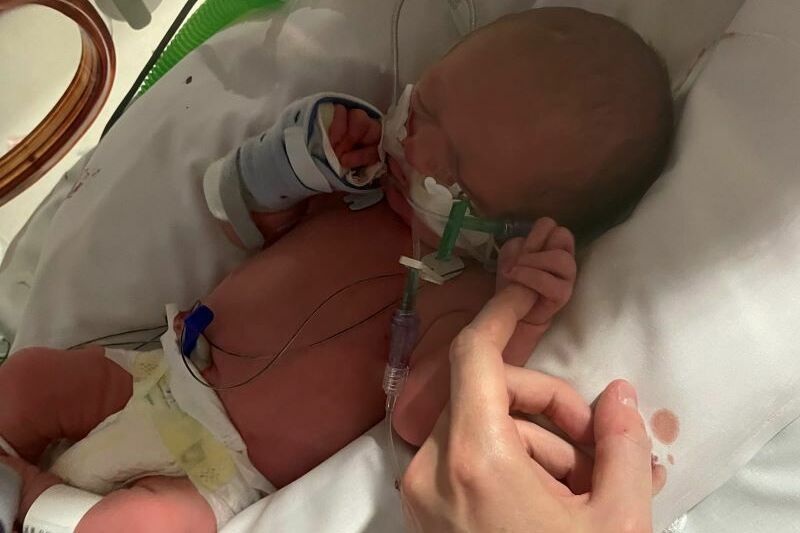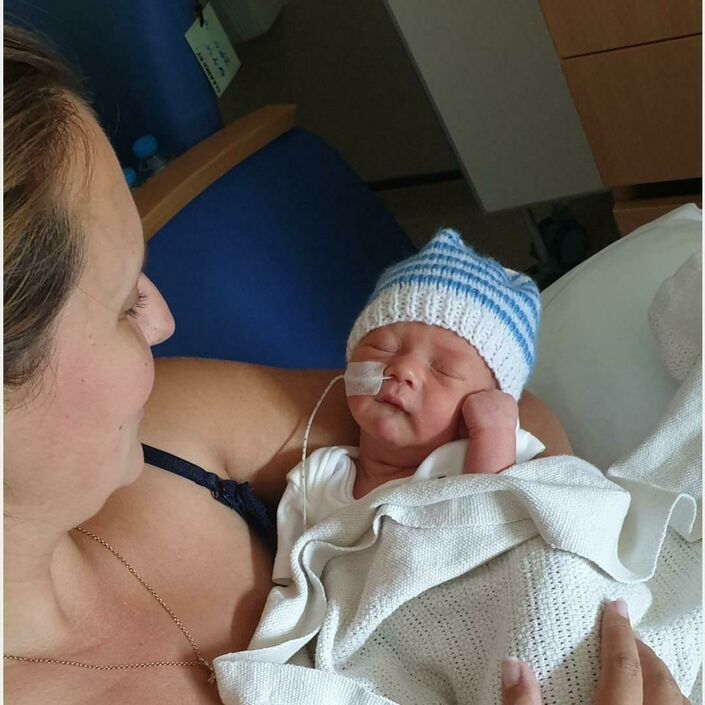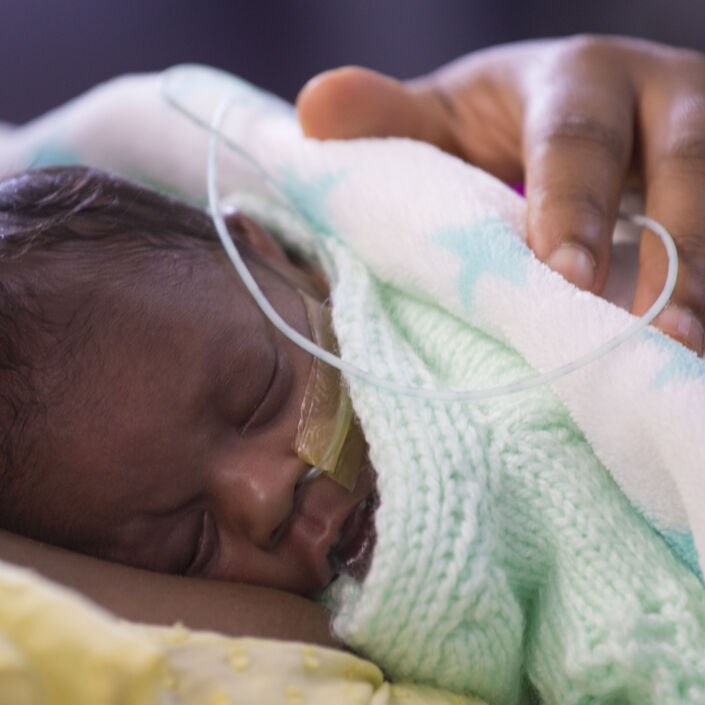I was excited and nervous when I found out I was pregnant with Ethan at 40. I’d lost a baby the year before and was worried that being advanced maternal age would have an impact on this pregnancy too.
We found out at a 20 week scan that Ethan had some physical markers- one being club foot and the other clenched fists where some of the fingers did not fully open. This was a concern in itself, however, the obstetricians wanted to find out if this was linked to a neurological issue. I had further scans and genetic tests, and we were prepared that when Ethan was born, we would have lots of appointments ahead of us.
We had just about got our head round this, but what I was totally not expecting is that when Ethan was born he would also need immediate neonatal care.
I gave birth spontaneously at 38+4 weeks on 23rd April 2024. It was a quick labour without any medication as I was fully dilated by the time we got to the hospital. Because of this and the fact I was full term, I was expecting my baby to be healthy and be able to be put on my chest straight away for skin to skin. This did happen, but only for a few seconds as he wasn’t crying at all. The doctors began to arrive quickly to check him, and within minutes he was taken to SCBU for respiratory distress as he wasn’t breathing properly.
I had to lie there as my midwife did the aftercare, while my partner and baby were down the corridor in a different unit. I had no idea what was happening. When I was finally allowed to go to see Ethan, I was terrified. There were multiple babies in one room, many in incubators with wires covering their little bodies. I couldn’t understand why Ethan needed to be here - I’d always thought special care and NICU was only for premature babies. I quickly learned during Ethan’s time in the unit that many full term babies also need neonatal care too, something that many people are not perhaps aware of.
Ethan was on 80% oxygen support when he arrived in the SCBU and at first, we could only touch him through the holes in his incubator. I was desperate to hold him, but we were told this wasn’t possible initially. I could only watch him and hold his hand, worrying that there was even more to worry about than what we were expecting. As I looked around the room, I saw similar worries in the faces of other parents who were going through similar experiences.
It took Ethan 3 weeks to be able to fully breathe without oxygen support. This was a difficult time, as my partner and I also have a 9-year-old daughter at home to care for and get to and from school daily. Really sadly, she wasn’t able to see Ethan due to the restrictions in the unit, so we were also dealing with her sadness and disappointment at not being able to meet her baby brother. We were all living separately and it didn’t feel like we were a new family of 4 that I had pictured.
I was still an inpatient for a week after Ethan’s birth due to hypertension, so I was able to visit him whenever I wanted to. When I was discharged and my partner and I drove home, I cried. It felt so wrong leaving our baby behind at the hospital, like part of me was missing. I tried to be at the hospital as much as possible and felt horribly guilty every time I had to go. I trusted that he would be well looked after by the wonderful team in the SCBU, but always felt like as his mum, it should be me doing that job.
Ethan came home 3 weeks after he was born, which although was not as long a stay as many other babies in neonatal care, it definitely had a profound impact on me. I was so happy that we could take him home, but another part of me was anxious and unsettled. How would we cope without the constant reassurance from the medical team? I also had a horrible feeling I couldn’t shift; I felt like a fraud and that I wasn’t really Ethan’s mum because of the difficult start we had had to his life. Not that I didn’t feel love for him - I did, very much, and believed that he was mine, but felt that because I didn’t bring him home straight away and care for him 24/7 that somehow he wasn’t really mine and that the hospital were going to come and take him back.
Over time I’ve realised that this was a response to the trauma of having a baby in neonatal care and these were all normal feelings, but because I was running on pure adrenaline when Ethan was in hospital, I didn’t experience these feelings until we came home. Talking to people I trust and reading other parents’ stories on the Bliss website reassured me that things would get better and I would start to feel more settled as time went on. The anxiety and trauma of neonatal care doesn’t end at discharge, and for any parents who are experiencing this right now, I would encourage you to talk about these feelings as I promise you are not alone. There is lots of support out there for you.




